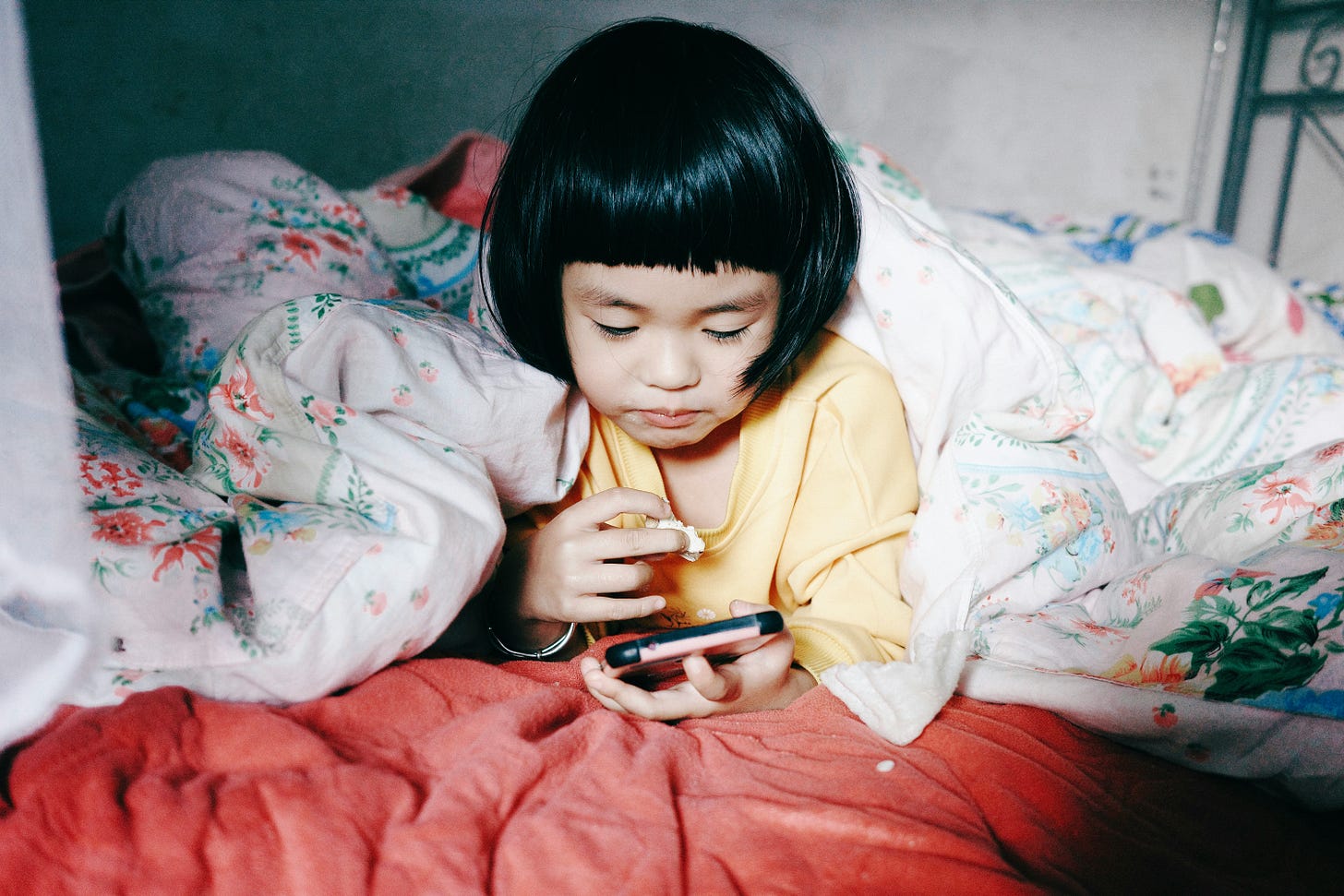A Phone in Every Pocket - But at What Cost?
Yesterday, I joined Pat Kenny and Alex Cooney, CEO of CyberSafeKids, to discuss a growing concern for parents: children growing up feral online, overexposed and underprotected.
The data tells a troubling story. CyberSafeKids reports that nearly half of children in less advantaged areas now own smartphones. Access is often more common in lower-income communities than in wealthier ones. Although these are expensive devices, children growing up today expect constant digital access. It is not about luxury. It is about a new cultural norm, and that norm is harming children.

There is something familiar about unhealthy cultural norms. I grew up in the 1980s when smoking was everywhere. Everyone knew it was harmful, but nobody really questioned it. You could even buy single cigarettes from the local shop - this was so children could afford them. It was just how things were.
In the interview, I discussed how smartphones have become the new cigarettes. We all know they are bad for us, but they are everywhere. We talk about screen time. We know we are too dependent on our devices, but it is hard to put them away. Every time you put your phone down, a multi-billion-dollar industry is working to get you to pick it back up.
The move from a play-based childhood to a phone-based childhood has led to the erosion of childhood itself. Children are spending hours online, often exposed to content far beyond their years.
Social skills are shrinking. Attention spans are collapsing. Boredom, which once led to creativity, is now avoided at all costs. Being on screens is not necessarily educational, and it does not make us healthier or happier.
The easy answer is to blame parents. But that is lazy. Parents are up against enormous pressures. Schools assign homework that requires devices. Teenagers organise their entire social lives through their phones. A parent who tries to take away the phone may find their child excluded from both education and social circles.
Meanwhile, tech companies have made it almost impossible for parents to enforce boundaries. They could offer strong age verification. They could design better parental controls. They choose not to, because it is not profitable. This is not a fair fight. Children can bypass restrictions with a quick YouTube search. Parents are expected to monitor everything, all the time, with little support and even less help from the social media platforms.
This is not just a parenting issue. It is a societal one. We need proper age verification. We need stronger regulations. And we need political will. Most of all, we need a cultural reset.
Smartphones should not be a rite of passage. They are powerful tools that require maturity and guidance. Childhood should be a time of play, discovery, and human connection.
You can listen to yesterday’s episode of The Pat Kenny Show here: https://link.goloudplayer.com/s/sGZCqlhx9a7T




Yes, "The easy answer is to blame parents."
And due to popularity of parent blame on social media, parent-child relationships are eroding and estrangement is encouraged as "self-care". A ripple effect is that parents have lost rights, respect and even basic kindness or consideration. Cutting off parents, advice given by strangers online, is undermining the parent-child bond. Then strangers online offer our kids a "better" solution to working through difficulties with their parents. Strangers online will be the kid's "new" mom or dad if the parent is not giving the kid what they want. It is a sad state of affairs.
I worry about the end of tolerating awkwardness, especially in the flirting/dating scene for teens and young adults. The phone is at the ready for any potentially awkward moment.